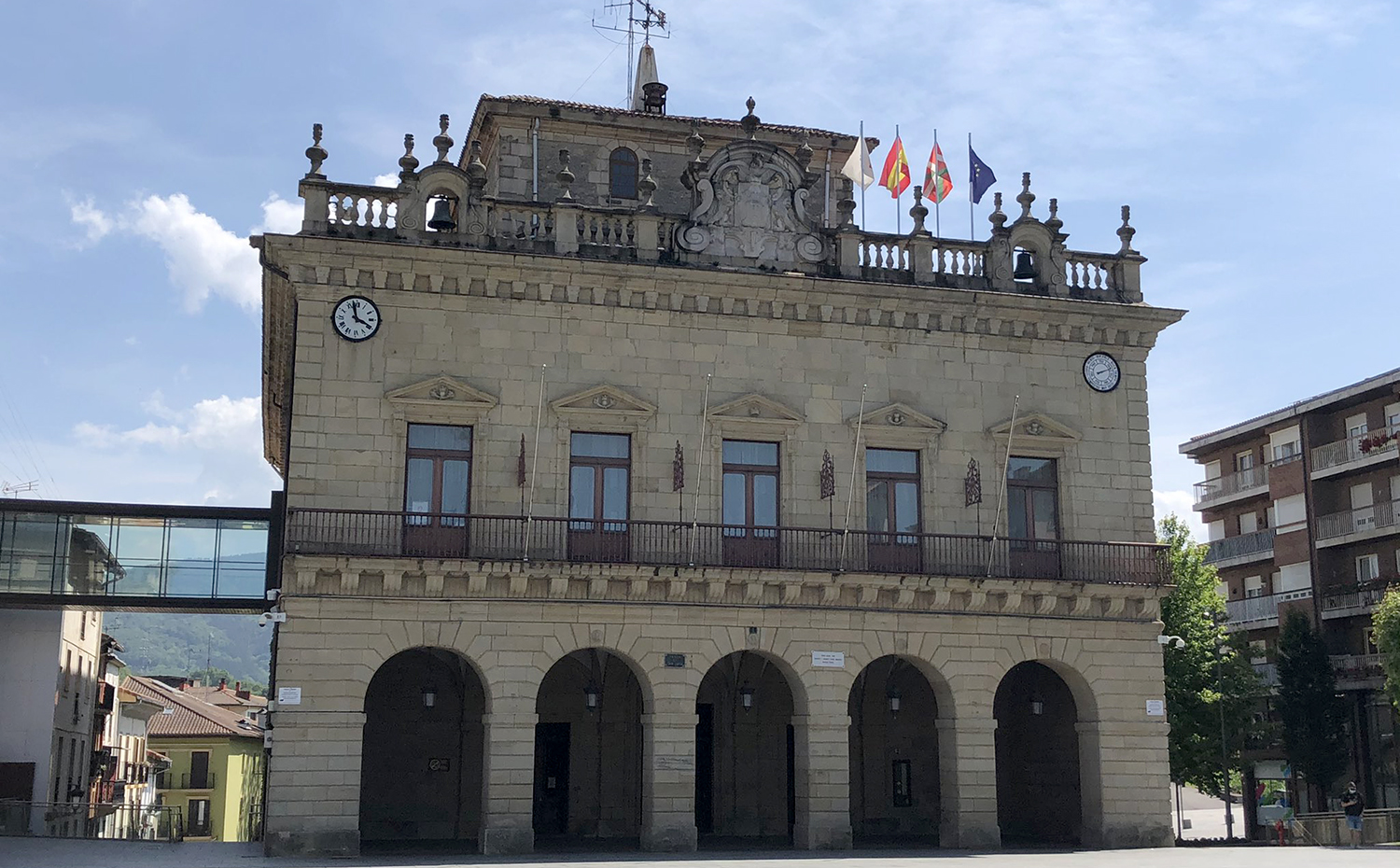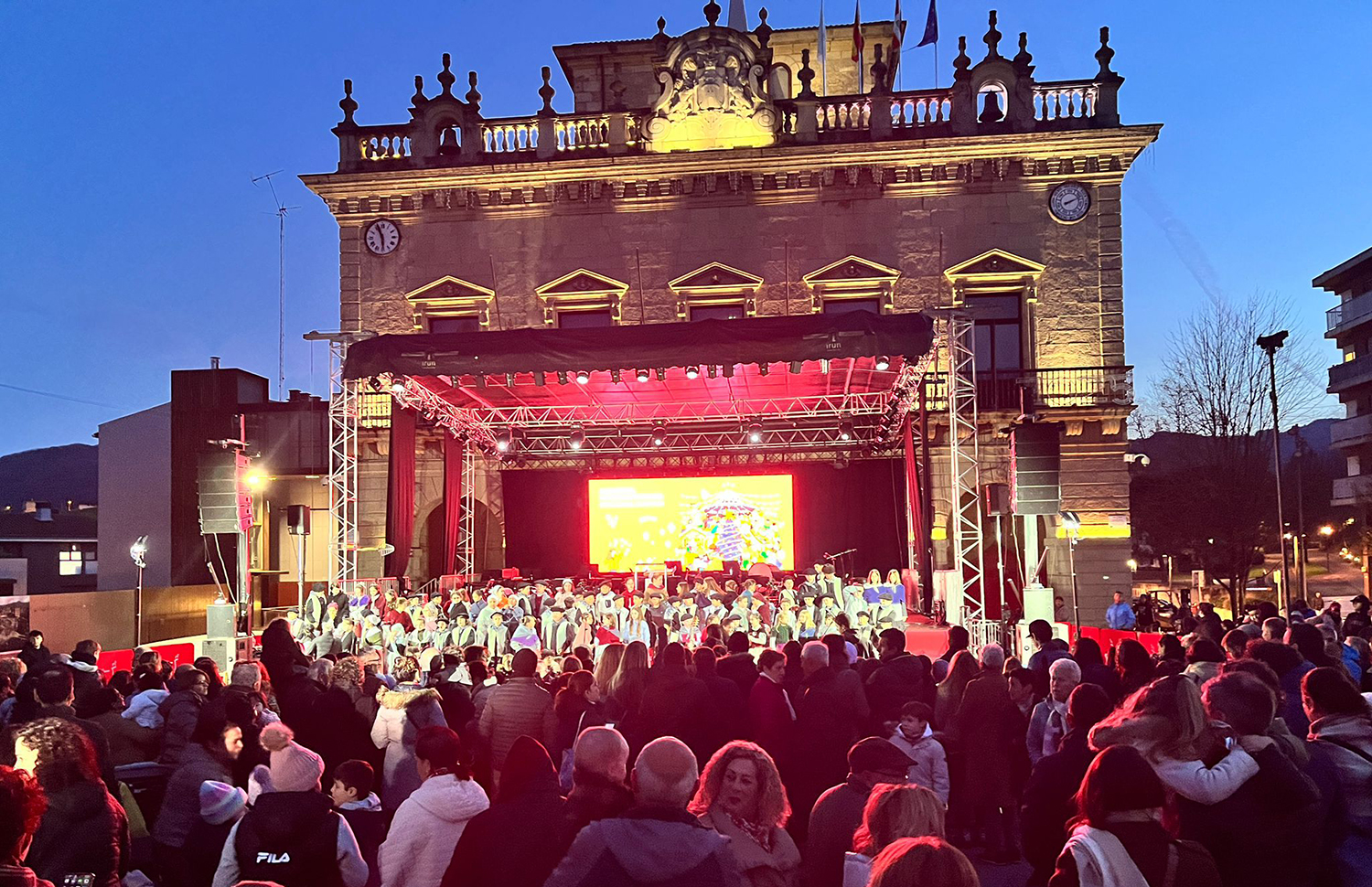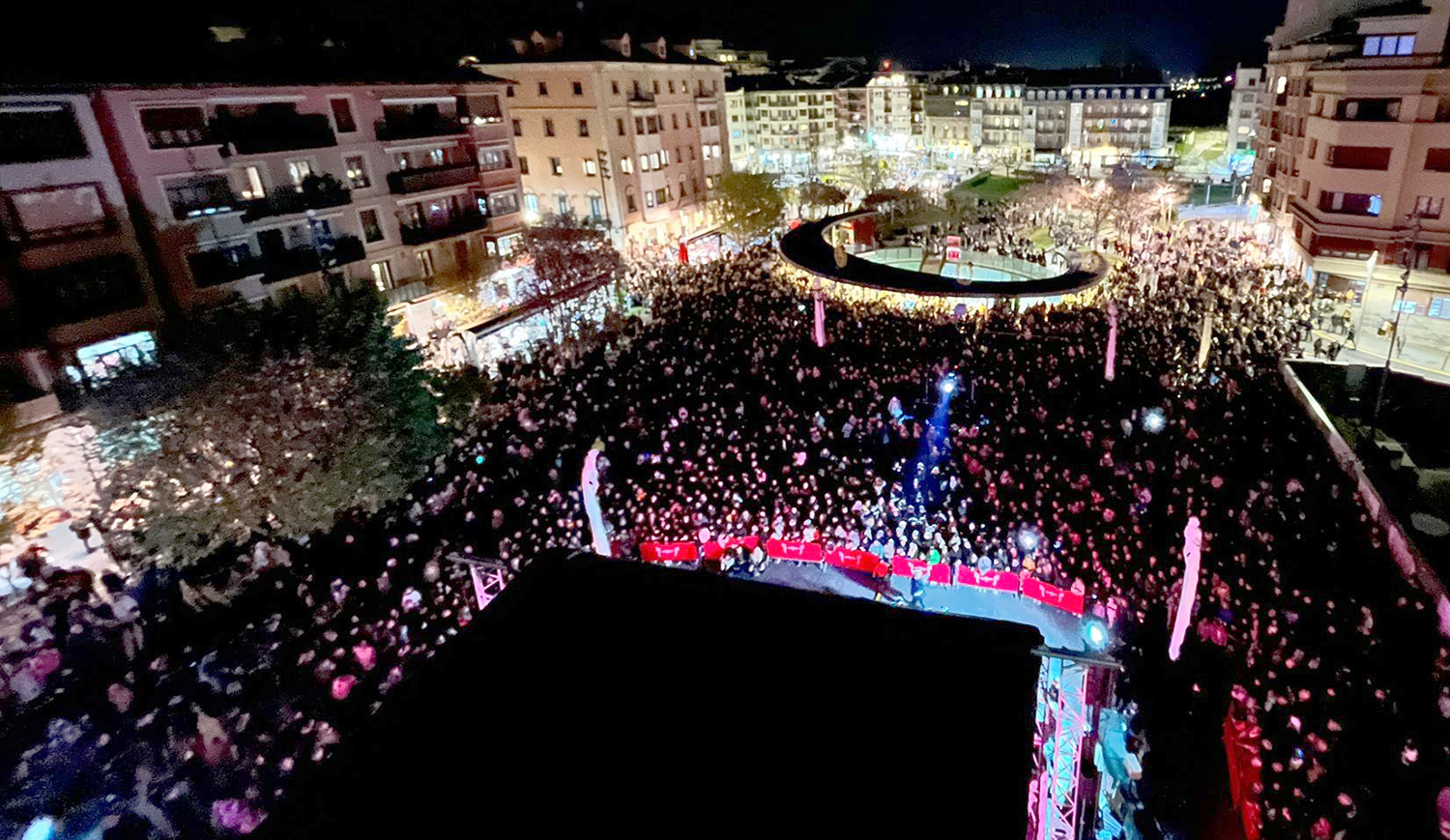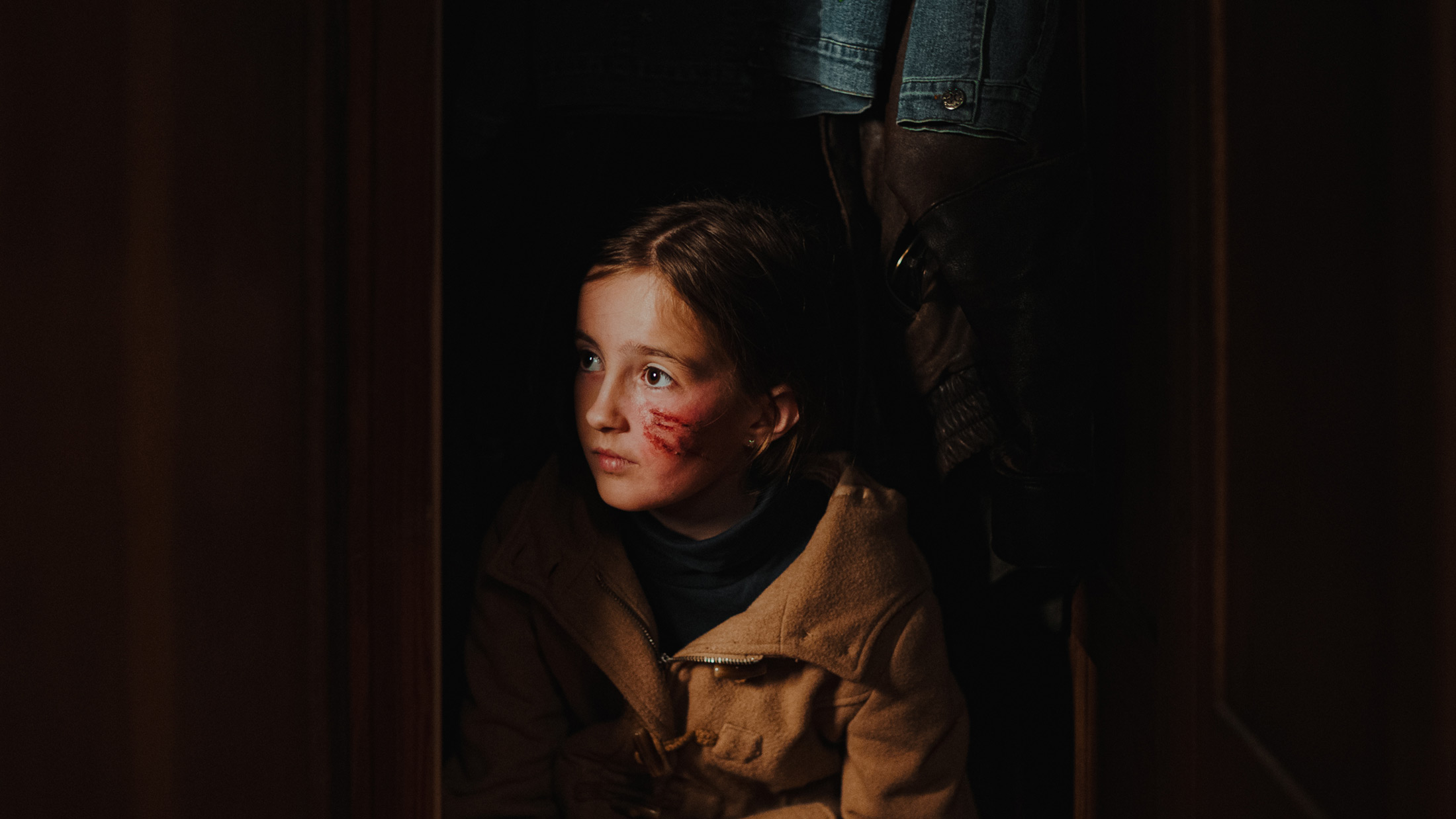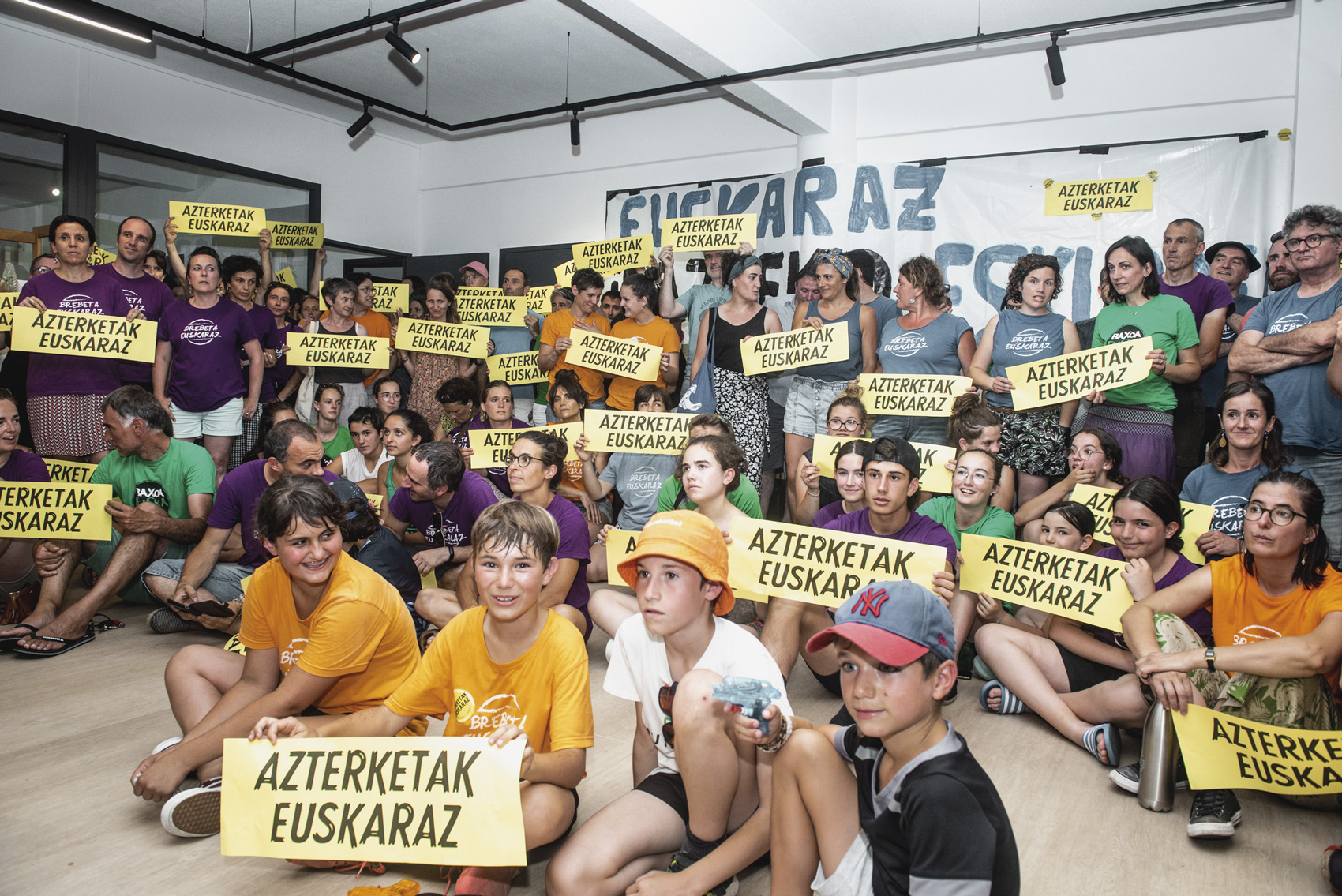Media cultural quotas are at issue: there is a lack of courageous policies
- It is drawn as a taboo subject in the Basque Country, but this is not the case in the world. Language policies cannot be put into the logic of the free market, but quotas or quotas must be established. They are necessary. And the ones that exist need to be complied with, because no one executes them. The Catalan Pol Cruz-Corominas has been in Azpeitia last weekend at a conference on creative education, culture and sport that has been held in the Basque Country. He has served as an adviser to a Catalan support association when the Spanish Government approved the Audiovisual and Human Rights Act two years ago. It enthusiastically defends the quotas to be applied in the media in order to protect minority languages.
Amagoia Gurrutxaga, spokesperson for the Association of Professionals of the Basque Country Lanartea, has launched the conference “Cultural quotas are not taboos everywhere”. It has taken twenty minutes to draw up examples of international states and of the European Union in particular – some examples at the end of the article – and the basis is that if in other dozens of countries there are cultural quotas to protect local language and local culture, in the case of English in the United Kingdom or in French in the French State, why not do so with Basque?
That is the debate. The truth is that there are no voices against it, but they have a much more important tool than the voice: impunity for not complying with the law. The Spanish Audiovisual Law states, for example, that, in addition to Spanish, the Spanish Public Television (RTVE) has to offer child programming in minority languages, with a simultaneous doubling service, but is not complying with the law. In addition, the streaming platforms had a period of six months to think and make known what they were going to do in terms of minority languages, how to increase their presence in their catalogue. A year and a half has passed and nothing has been said; the law is not being complied with. RTVE has not offered an hour in Basque in the last decade.
Spanish Public Television also has to offer children's programming in Basque, but it does not
These two points were two additional provisions required by the PNV to the PSOE, which the Congress of Deputies passed the law for its incorporation into the law, which did not have a majority otherwise.
What are you doing in Catalonia?
In Catalonia they have been more adept and quicker in some areas of language policy than in the Basque Country. This is humbly acknowledged by Pol Cruz-Corominas, an adviser to the Commission on Culture, Platform for Water. But it is critical of the political situation that Catalonia has experienced in the last decade: “In 2012, with the beginning of procès, policies in favor of Catalan were forgotten and excluded. At first we wanted an independent state, and then we would take care of language and culture. Now we are waking up from that dream, discovering where we are and getting back on track.”
The Catalan Pol Cruz-Corominas has been in Azpeitia last weekend at a conference on creative education, culture and life. He has served as an adviser to a Catalan support association when the Spanish Government approved the Audiovisual and Human Rights Act two years ago. It enthusiastically defends the quotas to be applied in the media in order to protect minority languages.
Québec has been the most distant reference in the history of the Catalans in this edition. Despite being under the Canadian administration, it mainly speaks French and has “bold policies” in terms of linguistic quotas, both in the cultural and cinematographic fields, according to Cruz-Corominas. In 1983, a law came into force which is still in force, requiring all films arriving in Quebec to have a copy in French. The French State demands the same thing; moreover, every copy of the film must be in French.
Plataforma per la Llengua has worked on the General Audiovisual Law of Spain, putting pressure on it. Cruz-Corominas, for his part, believes that things are going home, in Catalonia, in the right direction. To begin with, because Catalan Public Television (TV3) has five channels and five with 100% in Catalan – or almost entirely, because Castilian appears in the Polònia humor program when they represent Spanish politicians.
Five public television channels have in Catalonia and five have in Catalan 100%
Now, the Catalan public media corporation has opened a digital channel, beyond traditional television and radio, because it is clear that Catalan also has to work with the creators of social networks. “We must force against the contents in Spanish, in favor of our own,” said Cruz-Corominas: “We have to be aware that we have a statute of autonomy and we have to be weighed to defend linguistic policies; we have to be strong in all spaces of power to make culture visible and strengthen language.”
In Catalonia there is a share linked to the radio stations: 25% of the music that is broadcast must be in Catalan. It was launched 28 years ago, but Cruz-Corominas says that it is not complied with because the provision of the law provides for exceptions, and radios can justify that they cannot comply with the legislation because of their actions, for example, because they are specialized in Flamenco... and the exceptions have become excessive, according to the rapporteur: “All this had to be analyzed and controlled by the Catalan institution, and it has happened that it has accepted the exception to all; no broadcasters that do not meet the fee have been punished.”
Bold policies are needed
Cruz-Corominas, among other things, has seen the need to implement a European directive of 2018, which France is currently doing, aimed at streaming platforms that have to allocate one in four euros each individual pays to French productions and that have to be in French. “That, in the end, is a type of quota and millions of euros are destined to make content in French,” said Cruz-Corominas.
On the contrary, it is regrettable what is required by the Spanish Audiovisual Law, which is not complied with: 2%, 2% and 2% for Basque, Catalan and Galician.
Fighting spaces
Cruz-Corominas believes that if there is a debate on the application of quotas, that can happen with cinemas. In fact, as this is a case in which the physical space is “removed”, the fear of reducing the audience can spread among the halls. “This is an in-depth debate,” the rapporteur said, stating his opinion clearly: “I think if Catalan is the local language and your business doesn’t work because you have to meet the Catalan quota, because, listen, your business is not profitable. Kids don't work, right? Well, if you're using children for work and without the labor force of those kids, your business doesn't work, it's obvious why."
Cruz-Corominas: "We have to be aware that we have a statute of autonomy and we have to be weighed to defend language policies"
In any case, the platforms have no excuses: “When you see a film, when you have 25 languages, if you offer hindia and I don’t know what more languages, not offering Catalan and Basque doesn’t make sense.”
Examples to give quotas to those who say they are dictatorial
Examples are a machine. Indicators that cultural quotas are not taboo, as Lanartea pointed out.
In Brazil, as has been common since 1961, 70% of the music broadcast on radio stations has to be Brazilian at birth, a law that has subsequently been repealed because it is well directed and complied with. In France, since 1996, 40% of the music given in radio stations has to be in “country language” – the Basque radio stations in the Northern Basque Country interpret that, as the Basque country is also spoken in the French State, they can fill the space with the Basque country. In Portugal, the minimum share of national music by private broadcasters stood at 25%, rising to 30% during the pandemic, which has shown that they do not harm the radio commercial channels, and has remained at 30%, while on public radio Portuguese music has to represent 60%, which has been generated by the population of the European Union and among newly formed music. Like in Italy. In Chile, in 2016, the congress set a 20% share for the minimum broadcast of native music. And in Colombia, without a quota system, they're called to put music produced there.
In the audiovisual sector there are also a lot of examples, and some have been highlighted from Lanarte. For example, in the European Union, several states require streaming platforms to comply with a number of outstanding quotas, such as Germany, Greece, Finland, Norway, Sweden or Denmark. The French State claims that 20% of the catalogue's titles belong to the European Union, and 40% of them belong to the French language.
Gabonetako argiak pizteko ekitaldia espainolez egin izanak, Irungo euskaldunak haserretzeaz harago, Aski Da! mugimendua abiatu zuen: herriko 40 elkarteren indarrak batuta, Irungo udal gobernuarekin bildu dira orain, alkatea eta Euskara zinegotzia tarteko, herriko eragileak... [+]








